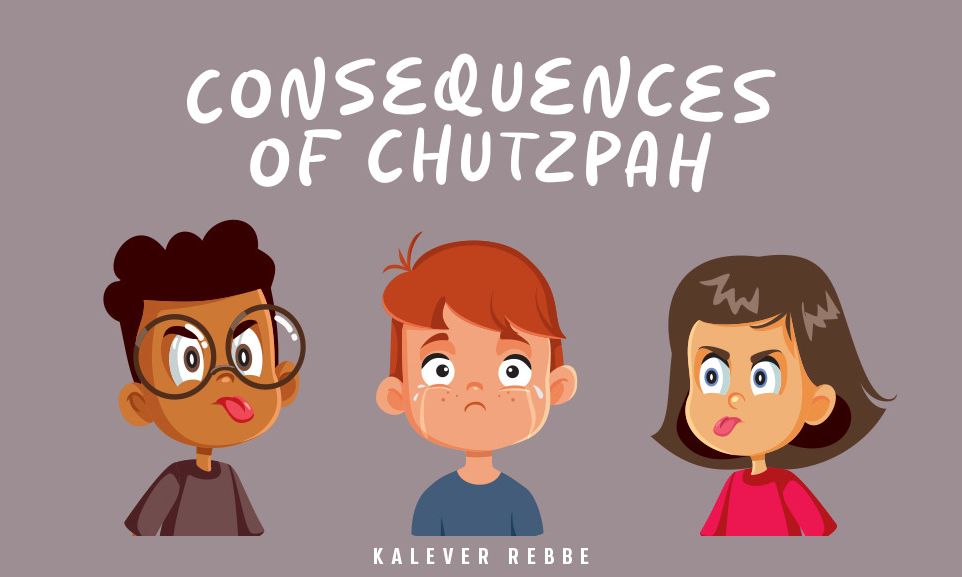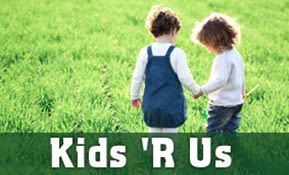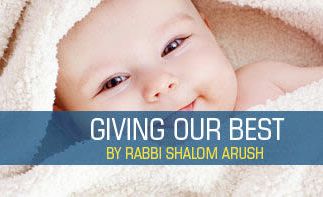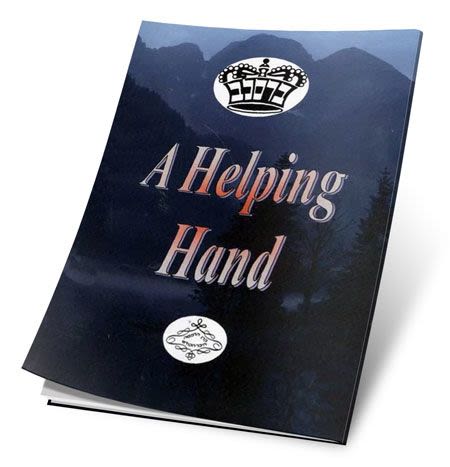
Consequences of Chutzpah
When your children see that Torah knowledge and a life of mitzvot are something that you cherish and admire, they will model that behavior and will aspire to those same values.

“And the man who acts intentionally, not obeying the kohen who stands there to serve the Lord, your God, that man shall die”. (Devarim 17:12)
It Is Not a Joke
Once, a Torah scholar was meeting with HaRav HaGaon R’ Shlomo Zalman Auerbach, zt”l, and he asked him: “Why have I been unsuccessful to raise and educate my children to follow the just and right path while my neighbor, who is a simple person, raised good, Torah observant children?”
R’ Shlomo Zalman, zt”l, knew these two families well and he answered him: “When you would join your family for the Shabbat meals, you would complain about this rabbi and that rabbi, discrediting everything that they would say. Your children saw this and said to themselves, ‘There is nothing special about learning Torah and nothing admirable about rabbis.’ When your neighbor sat with his family on Shabbat, he would glowingly describe how amazing the Torah is and he showed tremendous respect and esteem for the rabbis. His children grew up admiring the rabbinate and Torah scholars and they aspired to be like them.”
Disrespecting, mocking, and degrading the rabbinate and rabbis can eventually lead someone to become a complete heretic, denying the truth of the Torah and the core tenets of our faith, Hashem forbid.
The Rambam wrote (Hilchot Tumat Tzarat 16:10) that the wicked sit and demean the tzadikkim, as it says in Tehillim (31:19), Let lying lips become mute, those that speak against a righteous man falsely, with haughtiness and disdain. They would regularly speak with the prophets only to find fault in their words. They would then speak in a degrading way about Hashem and become complete heretics.
The Strength of the Jewish Community
The sin of disrespecting and disgracing teachers is one of the leading forces that can destroy Yiddishkeit.
The sustenance, the strength, of any Jewish community is dependent on the strength of their rabbi. When someone mocks the rabbi, when they try to find fault with the rabbinic leadership. and when they ridicule a rabbi’s guidance made publicly or privately, they will eventually abandon Hashem, His Torah, and mitzvot.
When children witness their parents behaving like this, when they hear their parents disparaging the rabbis, the impact on their spiritually is devastating. History is riddled with examples of communities that disrespected their rabbis. And, in the end, it destroyed their commitment to Judaism and led to the destruction of their communities. The next generations were heretics and atheists.
This even happened when communities were filled with prestigious observant Jews. Their mockery of the rabbinate created an environment where their children were raised to disrespect rabbinic authority and eventually, they chose to abandon a life of Torah and mitzvot.
Parents Must be Models
Parents must be models. They must be living examples for their children. Therefore, it is critical that parents make a concentrated effort to always describe Torah scholars and rabbis to their children in a positive light. When the children see that Torah knowledge and a life of mitzvot are something that you cherish and admire, they will model that behavior and they will aspire to those same values.
When parents do the opposite, when they mock a rabbi or find fault in his sermons or guidance, the children will mimic those values, too. They will disrespect the rabbinate; they will scorn the guidance and advice of Torah scholars. Eventually they will say, as Chazal teach (Sanhedrin 99b), “What have the rabbis done to benefit me?”
The Ben Ish Chai in his book Ben Yehoyada (Shabbat 119b) relates a story of a child who would go to school every day by himself. One day while on his way to school, he came across a wise man. He called him “Rebbi” and asked him to walk with him. Behind them walked two brute and ignorant men. These men started to mock the Rebbi. They ridiculed him showing complete and utter disrespect. And, the boy heard these comments.
The following day, the boy refused to go to school. His teacher tried to convince him to return but he refused. His concerned father said to the boy: “Go back to school so you can learn Torah and become a Rebbi.”
The boy answered: “Why would you curse me?! Yesterday I heard what people really think about a Rebbi. I heard how they mock that title.”
Using this story, the Ben Ish Chai explained the pasuk (Divrei HaYamim I 16:22), “Do not touch My anointed ones, and do not harm My prophets” (Tehillim 105:15). Chazal explained this pasuk in Shabbat (above), “My anointed ones” are referring to the children that study Torah and “My prophets” is referring to Torah scholars. The pasuk combines these two categories of people, because they are interdependent. By not disgracing the Torah scholars, you ensure that you won’t damage the school children.
The Words of Parents Carry the Most Impact
The Gemara in Succah (56b) recounts a story of Miriam who was the daughter of a Kohen named Bilga. She kicked the altar and said, “Wolf! Wolf! Just as a wolf steals the flock damaging the owners, this altar where you bring sacrifices to Hashem is a waste of money!”
When the chachamim heard about what she had done, what did they do? They punished her entire family. Why were they punished for their daughter’s actions? As the Gemara explains, because she certainly learned this behavior from her parents. She was taught these values through modeling. Her father certainly would complain about the cost of mitzvot and a Torah life. He would mock the apparent waste of money. This directly led to the daughter feeling that the sacrifices on the altar were a complete waste of time and money. She became a complete heretic.
Don’t Die!
When someone raises children who admire Torah and its scholars and who lead a life committed to Torah and mitzvot, the parent lives on beyond their death through the good deeds and mitzvot of the children. That parent is considered “alive”.
The Gemara teaches (Tannit 5b) “Yaakov our father did not die”. It says in Yirmiyahu (30:10) “And you, fear not, My servant Jacob, says the Lord, and do not be dismayed, O Israel, for behold I save you from afar and your seed from the land of their captivity, and Jacob shall again be silent and at ease, and no one will frighten them”. The Gemara learns that Yaakov “did not die” – that he lived on through the deeds of his descendants. As his children live, so does Yaakov.
This is what our pasuk here means: “And the man who acts intentionally, not obeying the kohen who stands there to serve the Lord, your God” – when someone mocks the Jewish community’s leadership, when he ridicules rabbis and scholars, “that man shall die” – without the good deeds and mitzvot of their children, the parents will truly be considered dead after 120, because their behavior will be learned by the children who strayed from Torah and mitzvot as a result, and there will be nothing that lives in this world beyond their years that can credit them with life, unlike Yaakov Avinu.
Only when parents admire and value Torah scholars and rabbis, will they merit to raise beautiful, good children who share those values, who remain committed to Torah and mitzvot, and whose deeds will continue for generations to come.
***
The Kalever Rebbe is the seventh Rebbe of the Kaalov Chasidic dynasty, begun by his ancestor who was born to his previously childless parents after receiving a blessing from the Baal Shem Tov zy”a, and later learned under the Maggid of Mezeritch zt”l. The Rebbe has been involved in outreach for more than 30 years, and writes weekly emails on understanding current issues through the Torah. You can sign up at www.kaalov.org.







Tell us what you think!
Thank you for your comment!
It will be published after approval by the Editor.